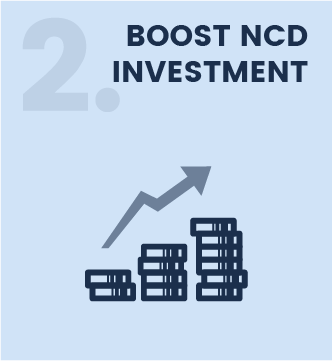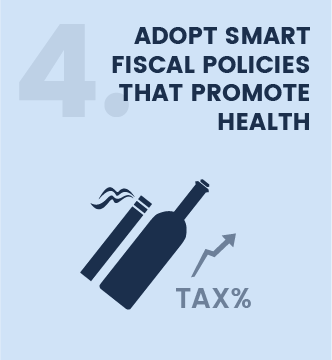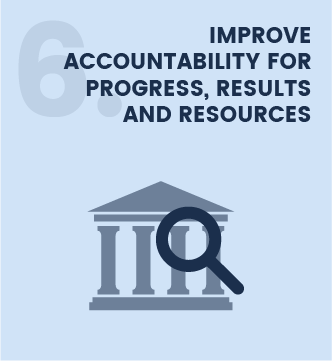PRIORITY 5.
Save lives through equitable access to NCD treatment and UHC
RATIONALE
Access to treatment and care is a fundamental human right for everyone to achieve the highest possible standard of physical and mental health and well-being.
Availability and access to lifesaving treatment, care and support for people living with NCDs is still out
of reach for millions of people around the world, particularly in low- and middle-income countries and for the world’s poorest and most vulnerable populations. This is despite global targets for 2025 to ensure 80% availability of essential medicines and technologies for NCDs in public and private facilities, and a specific target on multidrug therapy for CVD and diabetes. A particular issue is the insufficient access to controlled opioid analgesics for pain relief and palliative care. Challenges of access relate to weak health systems in many LMICs, including the lack of adequate preparation and training of the health workforce, insufficient financial resources, poor procurement policies and weak supply chains, inefficient information systems, and lack of patient education and low health literacy.
Reducing the burden of NCDs will be essential to achieving Universal Health Coverage (UHC) and the SDGs, particularly goals focused on ending poverty in all forms everywhere and reducing inequalities within and among countries. Integration of NCD prevention and treatment in UHC schemes and a strong focus on equity is fundamental to strengthen health systems to deliver for NCDs throughout the life-course and protect against financial hardship.







